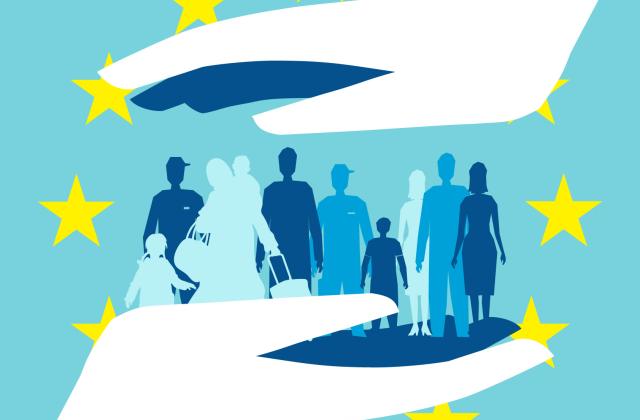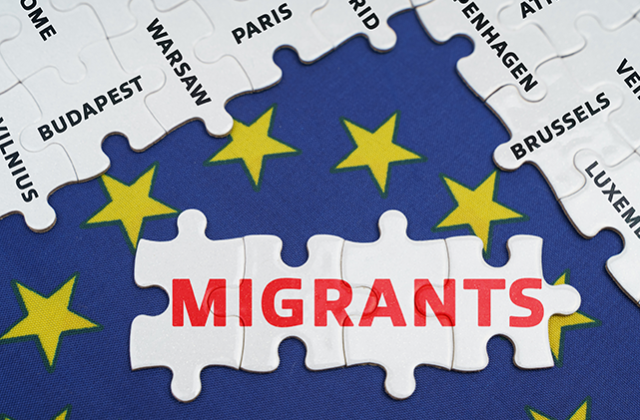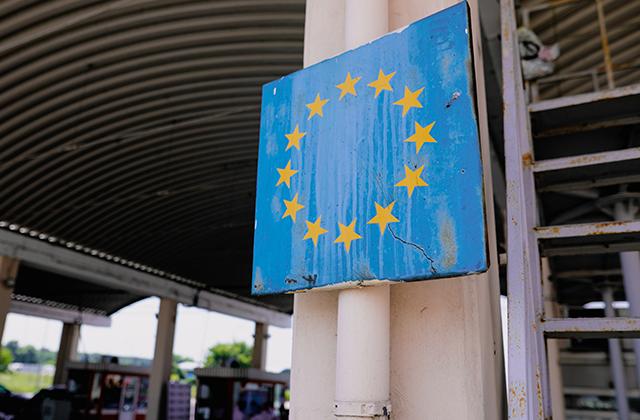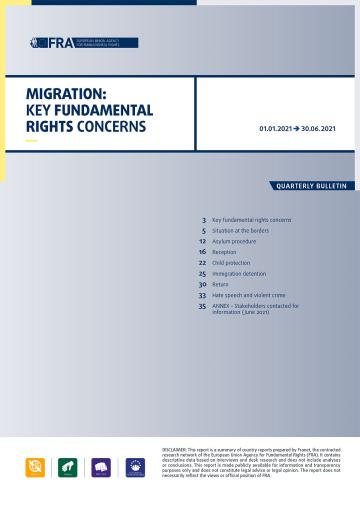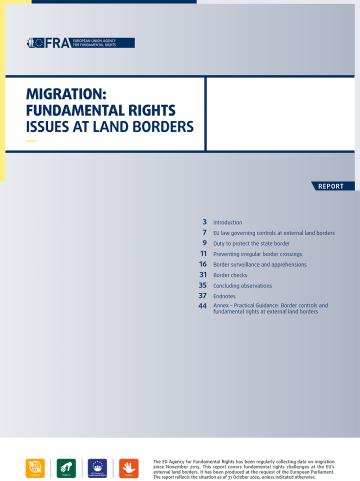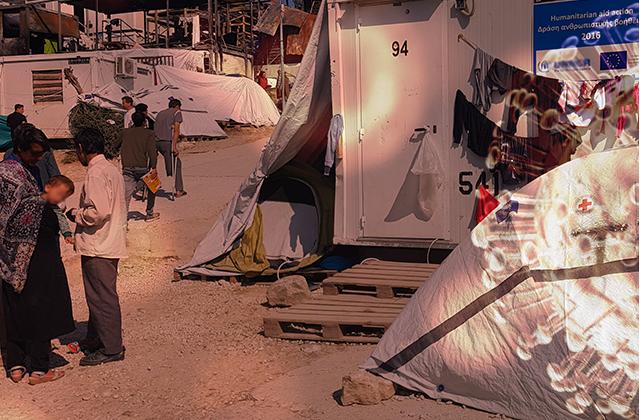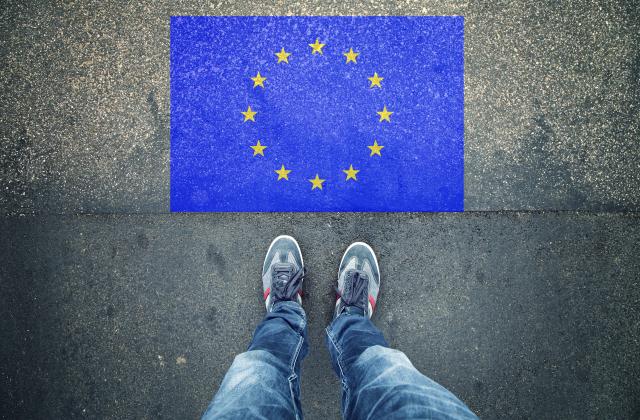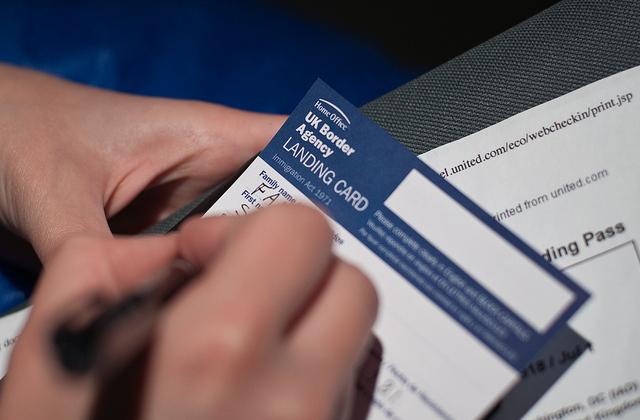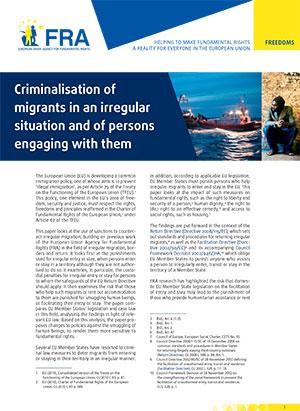- The instrumentalisation of migrants and refugees might entail cooperation with or the involvement of transport operators, in particular airlines, or of other commercial actors. They may engage in transferring migrants either to the EU or to nearby third countries, and/or offer accommodation and services on the way.
-
According to the Council, many airborne transport operators have contributed to arrivals of third-country nationals to the EU or neighbouring regions, which have then proceeded to irregular entry or stay in the EU [54]
Council of the European Union, ‘Kick-off discussion on the proposal for a regulation on measures against transport operators facilitating irregular migration’, 2021/0387(COD), 16 January 2025.
. - In accordance with Article 4(2)(g) of the TFEU, the EU has a shared competence with Member States in the area of transport (Title VI of the TFEU). In the last few years, the EU has been taking steps to prevent or counter the involvement of transport operators in the smuggling of migrants and trafficking in human beings, more generally, and their involvement in instrumentalising migrants and refugees, more specifically.
-
Sanctions in response to the instrumentalisation of migrants and refugees also targeted airlines, tour operators and hotels that have helped incite and organise irregular border crossings from Belarus to the EU [55]
Council of the European Union, ‘Belarus: EU adopts 5th package of sanctions over continued human rights abuses and the instrumentalisation of migrants’, Council of the European Union website, 2 December 2021. See also, Council of the European Union, ‘Timeline – EU sanctions against Belarus’, Council of the European Union website, 12 June 2025.
. Under Article 8(b) of Council Regulation (EC) No 765/2006, the Belarus national airline Belavia is banned from landing in, taking off from or overflying the territory of the EU. Belavia had opened new air routes and expanded existing connections flying third-country nationals from the Middle East who wish to cross into the EU to Belarus. The EU also imposed sanctions on the airline Cham Wings, which increased the number of flights from Damascus to Minsk in 2021, freezing funds and economic resources it may have in the EU [56]
Council Implementing Regulation (EU) 2021/2124 of 2 December 2021 implementing Article 8a(1) of Regulation (EC) No 765/2006 concerning restrictive measures in respect of Belarus, OJ L 430I, 2.12.2021, p. 1, ELI: http://data.europa.eu/eli/reg_impl/2021/2124/oj, points 16 and 22.
. -
The EU also imposed sanctions on the Belarusian state-owned tourism company Tsentrkurort and the tour operator Oskartur for facilitating visas and organising the travel of third-country nationals to Belarus. Hotel Minsk and Hotel Planeta, which accommodated migrants and refugees before they were moved to the border with the EU, are also on the EU sanctions list [57]
Council Implementing Regulation (EU) 2021/2124 of 2 December 2021 implementing Article 8a(1) of Regulation (EC) No 765/2006 concerning restrictive measures in respect of Belarus, OJ L 430I, 2.12.2021, p. 1, ELI: http://data.europa.eu/eli/reg_impl/2021/2124/oj, points 17–20.
. In February 2022, the EU imposed restrictive measures on the Belarusian company Bremino Group, responsible for a transport and logistic centre at the Belarus border with the EU, which accommodated third-country nationals intending to cross into the EU, and on its co-owners [58]
See Council Decision (CFSP) 2022/307 of 24 February 2022 amending Decision 2012/642/CFSP concerning restrictive measures in view of the situation in Belarus, OJ L 46, 25.2.2022, p. 97, ELI: http://data.europa.eu/eli/dec/2022/307/oj; andCouncil Implementing Regulation (EU) 2022/300 of 24 February 2022 implementing Article 8a of Regulation (EC) No 765/2006 concerning restrictive measures in view of the situation in Belarus, OJ L 46, 25.2.2022, p. 3, ELI: http://data.europa.eu/eli/reg_impl/2022/300/oj, Annex I, Table A, points 88, 126, 127 and 280 andTable B, point 10.
.
-
To address their involvement in migrant smuggling more generally, as requested by the European Council in 2023 [59]
European Council, ‘Special meeting of the European Council (9 February 2023) – Conclusions’, 9 February 2023. See also European Commission, ‘Migration routes: Commission proposes Action Plan for cooperation with Western Balkans to address common challenges’, European Commission website, 5 December 2022.
, the Commission presented a toolbox to counter the phenomenon of criminal networks taking advantage of services provided by transport operators to bring irregular migrants close to the EU [60]
European Commission, ‘Toolbox addressing the use of commercial means of transport to facilitate irregular migration to the EU’, European Commission – Migration and Home Affairs website, 6 June 2023.
. Some of the diplomatic and operational measures envisaged therein are also relevant to counter instrumentalisation. - The toolbox focuses on airlines and builds on policies and guidance the Commission developed to counter trafficking in human beings. It includes preventive measures, such as outreach to third countries, awareness-raising activities with transport operators in third countries, the training of airline staff and information exchange with third countries and transport operators. The Commission also suggests developing international guidelines on recognising and reporting patterns of facilitation of irregular migration, facilitating the sharing of best practices and an early warning system.
-
Next to such softer measures, the toolbox also lists punitive measures. These include, for example, the suspension or revocation of the operating licence of an EU air carrier if it does not meet good repute requirements. Under Article 3 of Regulation (EC) No 1008/2008, any undertaking established in the EU that wishes to carry air passengers must obtain an operating licence. To obtain such a licence, the undertaking must comply with provisions of good repute (Article 4) [61]
Consolidated text of Regulation (EC) No 1008/2008 of the European Parliament and of the Council of 24 September 2008 on common rules for the operation of air services in the Community (recast), OJ L 293, 31.10.2008, p. 3, ELI: http://data.europa.eu/eli/reg/2008/1008/2020-12-18.
.
-
In November 2021, the Commission proposed a regulation concerning measures against transport operators that facilitate or engage in trafficking in persons or the smuggling of migrants [62]
Proposal for a regulation of the European Parliament and of the Council on measures against transport operators that facilitate or engage in trafficking in persons or smuggling of migrants in relation to illegal entry into the territory of the European Union, COM(2021) 753 final of23 November 2021.
. The proposal – based on Article 91 and Article 100(2) of the TFEU – would enable the Commission to take preventive measures against such transport operators. Restrictive measures proposed include, for example, limiting or suspending the right to provide transport services in the EU and suspending the right to transit, fly over the EU, refuel or carry out maintenance in the EU. The proposal is still under negotiation by the EU co-legislators [63]
Measures against transport operators that facilitate or engage in trafficking in persons or smuggling of migrants in relation to illegal entry into the territory of the European Union, 2021/0387(COD) of 23 November 2021.
.
- The second set of actions to counter the instrumentalisation of migrants and refugees is to target transport companies and other commercial operators actively involved in transporting people to the EU or to its external borders on behalf of a third country. Such measures should differ depending on whether private operators act consciously in supporting a third country’s unfriendly act against the EU or a Member State or not. In the first case, it may include restrictive measures as described in Chapter 1.
-
In the second scenario, the EU and its Member States may take measures under Titles V and VI of the TFEU. These may range from softer measures, such as the training of airline staff, to revocation of operating licences when airlines do not meet good repute requirements. When such measures restrict fundamental rights, including the freedom to conduct a business set out in Article 16 of the Charter, any limitation must meet the requirements of Article 52(1) of the Charter [64]
On the impact of COVID-19-related closures of internal borders to the freedom to conduct a business, see judgment of the Court of Justice of 5 December 2023, Nordic, C-128/22, ECLI:EU:C:2023:951, paragraphs 92 and 95.
. They must also respect equality before the law and non-discrimination protected by Articles 20 and 21 of the Charter.





